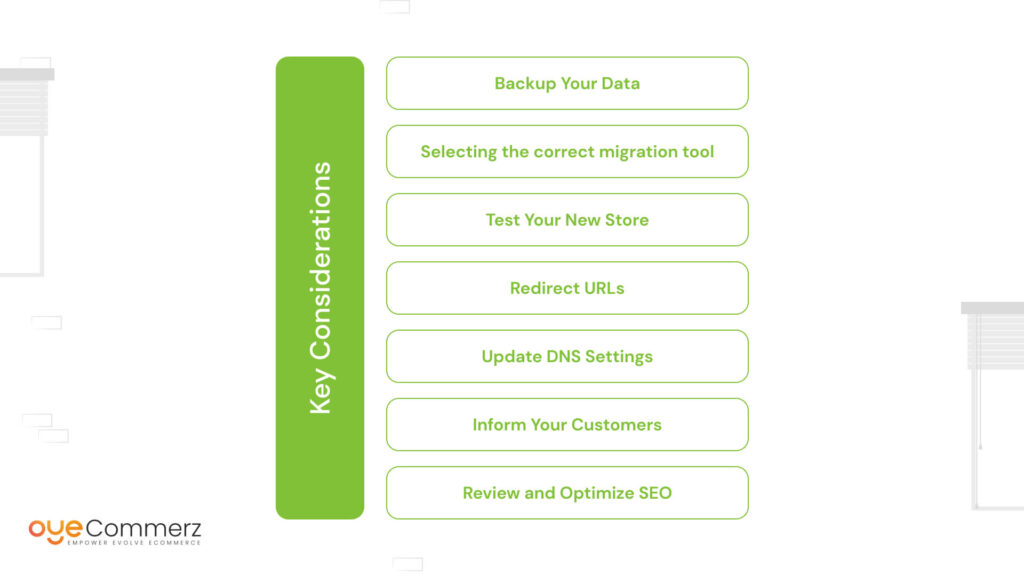In the constantly changing landscape of eCommerce, picking the best system is essential for your company’s success. If you’re at the moment using WordPress and thinking about a migration to an alternative, you’re not by yourself. Countless businesses are shifting to take advantage of Shopify’s powerful features, simplicity, and growth potential. This guide will walk you through the journey of migrating from WP to this platform effortlessly, making sure that you unlock your online retail potential.
Why Transition from WP to this platform?
Before diving into the migration journey, it’s crucial to know why this change can be beneficial for your online store:
User-Friendly Interface: Shopify offers an intuitive system that streamlines store handling, enabling for non-technical users.
Flexibility: As your business grows, Shopify can accommodate higher visitors and transactions without affecting efficiency.
All-in-One Solutions: Shopify includes pre-installed tools for SEO, analytics, payment handling, and more, reducing the requirement for several plugins.
Enhanced Security: With Shopify, you utilize strong security features that protect critical customer details.
Steps for a Seamless Migration
Migrating your digital shop from WordPress to Shopify involves key actions.
Here’s the way to ensure a hassle-free transition:
Outline Your Migration Approach
Start by mapping out your migration blueprint. Identify which elements of your current site you want to move, such as:
Inventory information
User details
Transaction records
Posts
Pick the Right Migration Solution
Depending on your needs, opt for a migration service that aligns with your business. Migration experts delivers various choices:
Starter Package: Perfect for boutique stores with limited products.
Standard Migration Package: Suitable for medium-sized businesses with moderate demands.
Premium Migration Package: Best for larger stores demanding custom customization.
Secure Your Content
Before starting the migration, make sure that you have a complete copy of your WP site. This action is essential in the event anything goes off track during the migration.
Retrieve Your Information from WordPress
Use tools or custom scripts to export key information from your WP site:
Inventory
Clients
Sales records
Blog posts
Upload Content into Shopify
Once you have your content retrieved, WordPress to Shopify guide employ Shopify’s migration apps or specialized apps to transfer your information into your updated store. Confirm that all data is accurately structured and arranged.
Customize Your Shopify Platform
Once importing information, adjust your Shopify site’s theme to align with your style. Consider working with a designer if you require advanced customization.
Set Up Payment Gateways and Shipping Options
Set up transaction methods and delivery choices in Shopify to ensure a seamless purchase experience for customers.
Apply SEO Guidelines
To maintain your SEO performance during the migration:
Implement 301 URL mappings from existing URLs to new ones.
Revise meta tags.
Adjust media and copy for search engines.
Review Your Updated Shop
Before launching, completely review your Shopify site. Look out for any broken links, checkout failures, or incomplete files.
Launch Your Store
When everything is in ready, learn more about eCommerce migration it’s time to launch! Announce the transition to your users and invite them to experience the new features of your Shopify store.
Post-Migration Assistance
Post launching your new store, ongoing assistance is key. Think about engaging service providers who can assist with:
Troubleshooting
Customer engagement
Enhancing features
Conclusion
Migrating from WordPress to this platform can be a crucial decision for your eCommerce. By adopting this guide and utilizing experts like those offered by OyeCommerz, you can guarantee a effortless transition that enhances your digital storefront. Adapt to the change and unlock the advantages of Shopify today!
